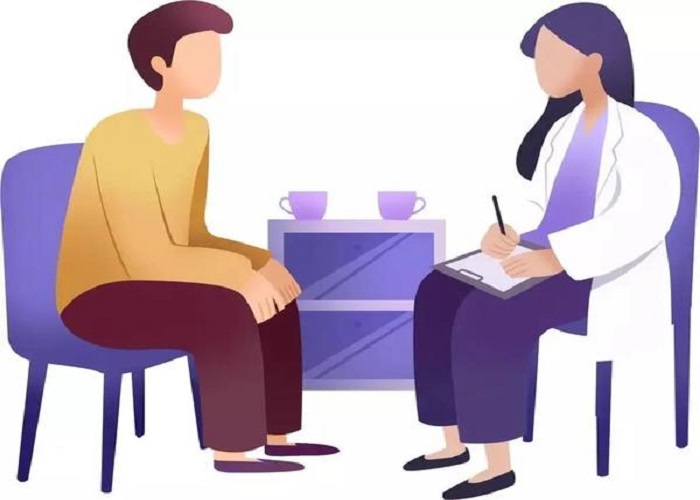Taking care of your mental health is just as important as taking care of your physical health. Stress, anxiety, and burnout can affect how well you work and live. A mental health day gives you time to rest, reset, and feel better.
Many people feel guilty or scared to ask for a mental health day. But it’s okay to take one. It’s a smart and healthy decision. Mental health days can help you come back to work feeling refreshed and more focused.
In this article, we will explain how to take a mental health day off work. We will cover when to take one, how to ask for it, and what to do during your time off.
1. Know When You Need a Mental Health Day
It’s important to know the signs that tell you it’s time for a break. If you are feeling any of the following, you might need a mental health day:
- You are always tired, even after sleeping.
- You find it hard to concentrate at work.
- You feel anxious, stressed, or overwhelmed all the time.
- You are less patient with others.
- You are no longer enjoying things you used to like.
Listening to your body and mind is the first step. If you notice these signs, it’s okay to take a step back and care for yourself.
2. Plan Ahead If You Can
If possible, try to plan your mental health day. Look at your schedule and choose a day with fewer meetings or deadlines. This makes it easier for your team and helps you enjoy your time off without stress.
Planning ahead also gives you time to prepare. You can finish important tasks early or let your team know who will handle your work while you’re away.
But if you feel too overwhelmed or need a break right away, don’t wait. Your well-being comes first.
3. Know Your Workplace Policy
Before you ask for time off, check your company’s time-off policy. Some companies allow mental health days as part of sick leave or personal days. Others may have special mental health programs or employee assistance plans (EAPs).
If you’re not sure what the policy is, talk to your HR department or look in your employee handbook. Understanding the rules can help you make your request smoothly and with confidence.
4. Ask for the Day Off
Once you’ve decided to take a mental health day, it’s time to ask your manager or supervisor. You don’t need to give too many details. Just keep it simple and professional. Here are a few examples of what you can say:
“I’d like to take a personal day on [date].”
“I need to take a sick day tomorrow.”
“I’m not feeling well and will need the day off to recover.”
You don’t have to say it’s for mental health unless you feel comfortable doing so. What matters is that you take the time you need.
5. Respect Work Responsibilities
Before taking your day off, try to handle any urgent tasks. Let your team know about anything important they should be aware of. Set an away message for your email or messages if needed. This helps you enjoy your day off without interruptions or stress.
Being responsible also shows your manager and coworkers that you care about your work—even when you’re taking time for yourself.
6. Make the Most of Your Mental Health Day
Now that you’ve taken the day off, use it to rest and recharge. Avoid checking work emails or doing office tasks. Focus on what helps you feel better. Here are some healthy ideas:
- Sleep in or take a nap.
- Take a walk outside or spend time in nature.
- Practice deep breathing or meditation.
- Watch your favorite movie or read a book.
- Spend time with a pet or loved one.
- Journal your thoughts and feelings.
Try to avoid unhealthy habits like overeating, drinking alcohol, or staying in bed all day. These may make you feel worse. Instead, do things that bring you peace and joy.
7. Return to Work Refreshed
After your mental health day, try to return to work with a fresh mindset. Reflect on what helped you feel better and think about how to keep that balance in your daily life.
You might decide to make changes, like setting better boundaries at work or taking short breaks during the day. Mental health days are helpful, but taking care of yourself every day is just as important.
8. Talk to Someone If You Need Help
Sometimes, one day is not enough. If you’re still feeling down or overwhelmed, consider speaking to a mental health professional. Therapists and counselors can help you understand your feelings and teach you ways to cope.
If your job has an Employee Assistance Program (EAP), you may be able to get free or low-cost support. Don’t wait to get help. Your mental health matters.
9. Support Others in Your Workplace
Taking a mental health day can set a good example for others. It helps create a workplace where people feel safe to talk about mental health. If a coworker shares that they’re struggling, listen with kindness and without judgment.
Together, we can build a work culture that values both success and well-being.
Conclusion
Taking a mental health day is not a sign of weakness—it’s a smart and healthy step. Knowing when you need one, planning it right, and using it to trulyrest can make a big difference. Remember, your mental health is just as important as your physical health. Take care of yourself—you deserve it.
Related topics:
- What Is A Mental Health Assessment? Purpose, Types & Benefits
- 10 Proven Steps To Fix Your Mental Health On Your Own
- When Is Men’s Mental Health Month?


